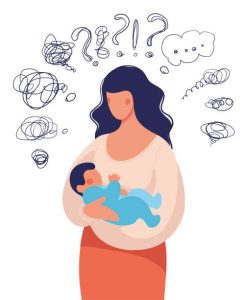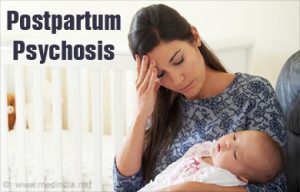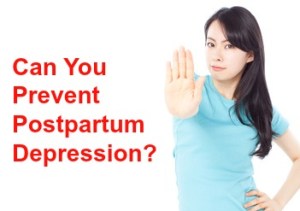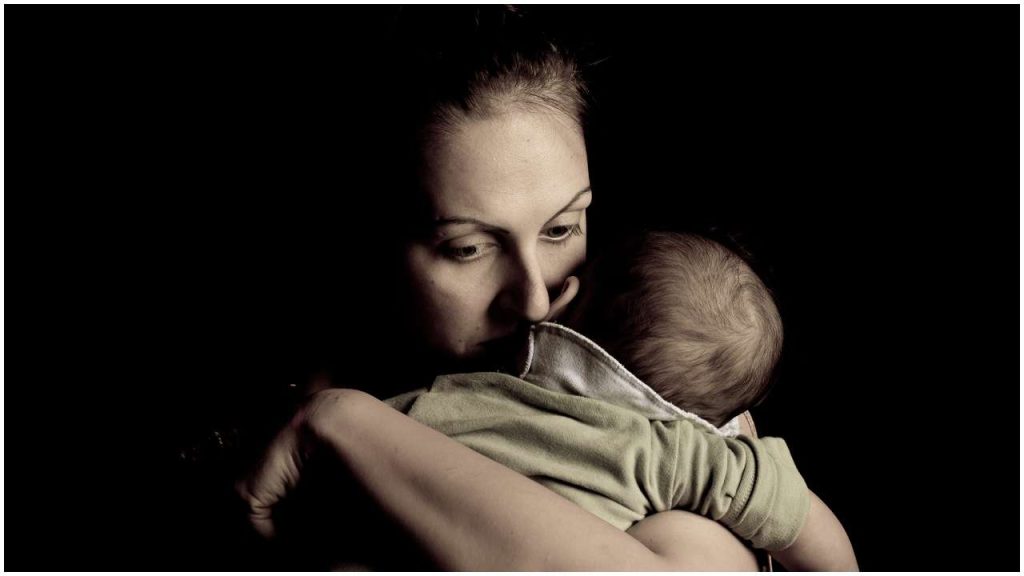Contents
- 1 What Is Postpartum Depression?
- 2 Stages Of Postpartum Depression
- 3 Symptoms of Postpartum Depression
- 4 Causes Of Postpartum Depression
- 5 Treatment For Postpartum Depression
- 6 Postpartum Psychosis
- 7 How To Cope With Postpartum Depression Symptoms?
- 8 Ways To Cope With Postpartum Depression
- 9 How To Prevent Developing Postpartum Depression?
- 10 Conclusion
- 11 A Word From Therapy Mantra
What Is Postpartum Depression?

Postpartum depression is a type of clinical depression that can affect women after they have a baby. It can happen as early as the first few weeks after delivery, or it may not start until several months or even years later. Postpartum depression can be mild, moderate, or severe, and it can last for a short time or for several years.
Stages Of Postpartum Depression
There are different stages of postpartum depression. It can happen as a new mom is adjusting to life with a new baby, or it can be something that happens after the baby has been born for some time already. Postpartum depression can come on gradually and without warning, which is why it’s important to be aware of the warning signs and get treatment before things get worse.
- Mild- Sometimes a woman with postpartum depression has only mild symptoms that go away after a week or two. Symptoms such as feeling sad or hopeless, having little interest in doing anything, and difficulty sleeping may be signs of mild postpartum depression.
- Moderate- Other women will have more severe symptoms when they’re suffering from postpartum depression. They may feel so tired and overwhelmed that they can’t care for themselves or their new baby. They also may experience thoughts of harming the baby, inflicting self-harm, and committing suicide. Some women lose touch with reality (psychosis), which can lead them to think someone is trying to harm them and their children. These women need immediate medical attention to stay safe and get treatment for postpartum depression.
- Severe– When a woman is suicidal or experiencing psychosis, it’s important that she get help right away. She may need to be hospitalized against her will if her family refuses to admit her for treatment. Women who are in this condition usually need medication and psychotherapy. They also may benefit from having the support of an infant mental health specialist, a therapist with special training in helping mothers who have problems with postpartum depression.
Symptoms of Postpartum Depression
Some women experience symptoms of postpartum depression even when their new baby is only one month old, but other women don’t have symptoms until their baby is several months old. Symptoms can range from mild to severe, depending on how serious your case of postpartum depression is.
Most of the time, postpartum depression symptoms don’t show up until after a new mom has been home from the hospital for several weeks or even months. In some cases, it’s possible to be suffering from postpartum depression and not know it right away. If you’re having trouble taking care of yourself and your baby, but you don’t think that what you’re going through is a big deal, then it can be hard to figure out that you have this condition.
Women with postpartum depression may experience one or more of these symptoms:

- Feelings of extreme sadness or emptiness
- Hopelessness about the future
- Feeling as though life isn’t worth living
- Lack of interest in doing things that used to be fun
- Lack of energy and feeling fatigued all the time
- Sudden irritability or anger without a clear explanation for it
- Feeling like you don’t love your baby anymore, even though you know you do deep down
- Trouble concentrating or making decisions
- Difficulty sleeping or sleeping too much (insomnia)
- Food cravings and/or loss of appetite, which leads to weight changes
- Thoughts about harming yourself or your baby
Causes Of Postpartum Depression
There is no one cause of postpartum depression, but there are several things that may contribute to it. Some women may be more likely to develop postpartum depression than others because of their biology or psychology. Additionally, there are several things that can put a new mom at risk for developing postpartum depression, including:
- Having a history of mental health problems, such as depression, anxiety, bipolar disorder, or OCD
- Experiencing stressful life events in the months before giving birth
- Having a difficult pregnancy or birth
- Feeling overwhelmed and stressed after giving birth
- Not getting enough support from family or friends
- Having problems breastfeeding
- Using drugs or alcohol during pregnancy
- Being in poverty
- Having a baby with special needs
- Being in an abusive or neglectful relationship
Treatment For Postpartum Depression

Treatment for postpartum depression varies, depending on the severity of your symptoms and how soon you seek treatment. Postpartum depression treatment can include: medications to help restore balance to neurotransmitters in the brain, therapy with a mental health specialist who has experience working with mothers dealing with these issues support groups for new moms who have this condition, as well as their partners/significant others In some cases, women find that a combination of these treatments is the best approach. Symptoms usually improve within a few weeks, though it may take longer if you’re suffering from moderate-to-severe postpartum depression. If you wait too long to get help, the symptoms could worsen and become chronic.
If you’re feeling like you might be suffering from postpartum depression, talk to your doctor. She can refer you to someone who specializes in the treatment of postpartum depression (a psychiatrist) if she thinks that’s necessary. A psychiatrist can give you a diagnosis and recommend the best form of treatment for your symptoms. Treatment options include:
Medication
Your doctor may prescribe antidepressants to help reduce your symptoms. Even though these medications may make it harder for you to sleep, they will really help improve other symptoms such as sadness and anxiety. In some cases, women with severe symptoms need to go on medication right away, but other women may be able to try medication only after they’ve tried some sort of non-medicine treatment for a while.
Cognitive Behavioral Therapy (CBT)
This type of therapy can help you learn skills that will improve your quality of life. It helps you think differently about the things that are happening in your life and find coping strategies that work for you. CBT is often effective at treating postpartum depression symptoms like sadness, but sometimes it’s not enough on its own.
Psychodynamic Psychotherapy
If CBT isn’t working or if you don’t want to do CBT, then your doctor may recommend psychodynamic psychotherapy (sometimes called dynamic psychotherapy). This form of therapy is more like a regular conversation with your doctor. It’s relaxed and down-to-earth. As things come up during the session, you and your therapist will discuss how they relate to what’s going on in your life.
Interpersonal Therapy (IPT)
Some doctors recommend this type of therapy for postpartum depression symptoms like sadness. With this type of therapy, you talk about your relationships and how they might be affecting the way you feel and behave.
Postpartum Psychosis

Most women with postpartum depression experience a mild form of this condition. Women who have a more severe form of it are said to be suffering from postpartum psychosis. As was mentioned earlier in this article, women who have extreme feelings about hating or hurting their babies may be experiencing psychosis. If you’re having these kinds of thoughts, then it’s important that you seek medical attention immediately to keep yourself and your baby safe.
Women who have postpartum depression can also experience psychosis. If this happens, they may:
- Think someone is trying to harm them and their children
- Misperceive reality by seeing or hearing things that aren’t there (hallucinations)
- Have false beliefs about what’s happening or who they are (delusions).
How To Cope With Postpartum Depression Symptoms?
If you think you might have postpartum depression or even just feel depressed after giving birth, there are steps you can take to help improve your symptoms:
- Get as much rest as you can and take care of yourself (eating properly and taking prenatal vitamins, for example)
- Make being a mother your full-time job until you feel better. Taking care of your baby isn’t something that should have to suffer just because you’re not feeling well. In fact, caring for your baby is one of the best ways to help yourself feel better. Your child will benefit from all of the love and attention being lavished upon him or her!
Talk To Someone About It
You don’t have to go through this alone. There are support groups available throughout the world that mothers who have newborns can join where they can talk about what they’re going through and help each other get back to a healthy place. Your doctor can also refer you to a therapist or support group, as well as give you guidance about what kinds of medications are available that may be able to help.
In some cases, women find it helpful to join online support groups where they can anonymously share their experiences with others who understand exactly how they feel.
There is hope for those suffering from postpartum depression. You should never have to feel ashamed or embarrassed about this condition because it’s not your fault! And the good news is that it’s highly treatable, especially if you seek medical attention quickly enough.
Ways To Cope With Postpartum Depression

There are a few things that you can do to help prevent postpartum depression from occurring:
- Get as much rest as you can before and after giving birth. This will help your body recover from the stress of labor and delivery.
- Make being a mother your full-time job until you feel better. Taking care of your baby isn’t something that should have to suffer just because you’re not feeling well. In fact, caring for your baby is one of the best ways to help yourself feel better. Your child will benefit from all of the love and attention being lavished upon him or her!
- Talk to someone about it. You don’t have to go through this alone. There are support groups available throughout the world that mothers can join where they can talk about what they’re going through and help each other get back to a healthy place.
- There are medications available that may be able to help you feel better. Your doctor will be able to prescribe one for you or refer you to a therapist who will be able to prescribe medication for you.
How To Prevent Developing Postpartum Depression?
 If you are experiencing any of the symptoms listed above, it is important to seek help. Here are a few ways to get started:
If you are experiencing any of the symptoms listed above, it is important to seek help. Here are a few ways to get started:
1. Talk to your doctor. They can help you figure out what might be going on and can provide treatment if necessary.
2. Contact a therapist or counselor. There are many professionals who specialize in postpartum depression and can provide the support you need.
3. Seek out support groups or online communities. There are many groups of women who have gone through (or are currently going through) postpartum depression. And can offer advice and support.
4. Eat healthy foods and exercise regularly. Make sure you are taking good care of yourself so that your baby can get the most out of you.
5. Ask for help! Feeling overwhelmed with all the new tasks is normal. But if things aren’t improving it’s time to ask for some help. Whether this means hiring a babysitter or asking around your social network, having support will make everything easier.
Postpartum depression (PPD) is not rare. 1 in 7 women experiences postpartum mood disorder after childbirth. It can be caused by hormonal changes, emotional changes, isolation, lack of support, and more. Postpartum depression is a common problem for women during pregnancy or shortly after giving birth. It can cause feelings of sadness, irritability, or hopelessness. You may have trouble bonding with your baby if you are suffering from postpartum depression. Many new mothers feel sad or anxious sometimes. But if these feelings don’t go away after two weeks-or they get worse- it might be postpartum depression.
Conclusion
Postpartum depression is a serious mental health condition that can affect both mothers and fathers. It’s important to know the signs and symptoms so that you can get help if you or someone you know is experiencing it. Postpartum depression can be treated, and most people who receive treatment improve quickly. If you are struggling with postpartum depression, don’t hesitate to reach out for help. There is no shame in seeking treatment for this condition. In fact, it takes courage to seek help when you’re feeling down. You are not alone in this journey. And there are people who want to support you every step of the way.
A Word From Therapy Mantra
Your mental health — Your psychological, emotional, and social well-being — has an impact on every aspect of your life. Positive mental health essentially allows you to effectively deal with life’s everyday challenges.
At TherapyMantra, we have a team of therapists who provide affordable online therapy to assist you with issues such as depression, anxiety, stress, workplace Issues, addiction, relationship, OCD, LGBTQ, and PTSD. You can book a free therapy or download our free Android or iOS app.


